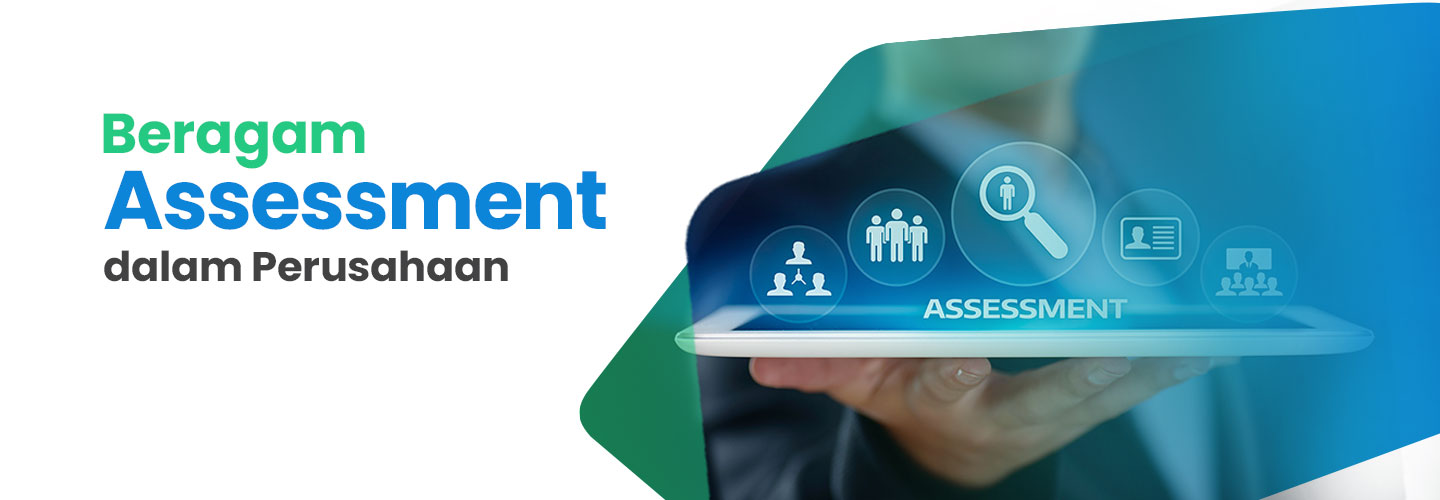ESG Center
Focus on driving sustainable business, practices through expert consulting, training, advising, assistance, and innovative solutions in Environment, Social, and Governance (ESG).

The company conducts an assessment to predict employee performance in the future. Certain types of assessments can be helpful when someone is being considered as a candidate in a position. The results of the assessment will show whether the prospective employee is able to meet the job criteria and whether the skills possessed are in accordance with the company's needs.
Other assessments are also carried out with a focus on the personality of prospective and current employees, as well as their motivation to complete work. In addition, there are many other types of assessment according to the needs of the company that can be carried out by the HR team.
Why Should Do an Assessment?
An assessment can help companies measure important elements of employee success criteria in the workplace, such as potential, competence, and performance. By conducting an assessment of employees or prospective employees, the company can find out the potential of employees.
This is especially aimed at companies that have joined the company with the required capabilities to be able to carry out their work well. The results of the assessment can help HR place the right people according to their functions, reduce employee turnover, and increase employee loyalty.
Types of Assessment Based on Company Needs
Knowing the right type of assessment to use for your company is very important. There are many types of assessments that the HR team can use to identify and evaluate employees, including:
1. Cognitive and Personality
The HR team can conduct cognitive and personality tests to determine the intellectual quotient, knowledge and insight of candidates before making a job offer. In terms of cognitive abilities, the test results will give HR an idea of ​​whether the candidate has sufficient intellectual capability for the job or not.
In terms of personality, the test results can also show whether the candidate's personality traits match the job requirements that have been determined by the company. For example, a highly introverted person may not be the best fit for a job where there is frequent contact with many clients.
It is not uncommon for cognitive and personality assessments to be carried out separately. Examples of cognitive assessment tests are logical reasoning (syllogism), numerical tests, verbal, abstract reasoning tests. While personality tests, for example, are the DISC and MBTI tests.
2. Motivation Assessment
Motivation assessment helps companies identify what motivates employees to work. Employees can also improve themselves and what kind of job options they want (such as whether the job is flexible or more structured).
This assessment can also be used to see what benefits and compensation affect their performance, such as whether the employee will be more motivated when getting recognition from peers and superiors. This type of assessment should be done regularly because what motivates employees will change as they progress in their careers and lives.
3. Performance Based Assessment (Performance Assessment)
Employees must set their performance standards on a regular basis in order to achieve work targets. For example, sales who meet certain sales targets or customer service who must provide the best possible service to customers so that the customer satisfaction rating increases.
In conducting this assessment, ensure that each employee is aware of the specific job description and performance requirements before they are evaluated.
4. Corporate Culture Assessment
This assessment will assess whether your prospective employee is in accordance with the culture that exists in the company. In addition, an assessment by adjusting the company culture ensures that your employees fit in and work well together as they improve the company's targets and goals.
If the company focuses more on product innovation, then your prospective employees must be innovative and forward-thinking. Or your company emphasizes more on service, the prospective employee must have good service for customers.
5. Assessment by Clients and Customers
To evaluate how employees work with clients or customers, you can ask for testimonials about their performance in person or through a questionnaire, such as a customer satisfaction questionnaire.
Feedback from clients is very important in ensuring your employees meet the needs and expectations of your clients and customers. Without this assessment, you will not know how the employees are performing in handling clients.
6. Assessment by Coworkers and Managers (360 Degree Assessment)
Each employee should be evaluated by managers and co-workers to see how they are performing on a daily basis. This assessment will give employees the opportunity to further refine their time management, communication skills, and many aspects to improve performance.
In general, the observation ability of assessors in a company must also be considered. In order to be able to integrate behavior and interviews well, the Improved Assessor Capabilities program can be a supporter of the sustainable achievement of company goals.
INSIGHT AND KNOWLEDGE
RECOMMENDATION ARTICLES